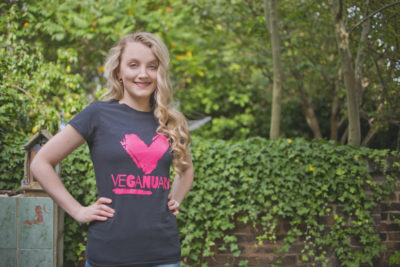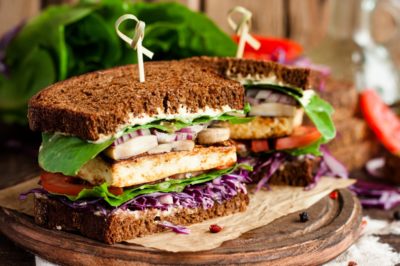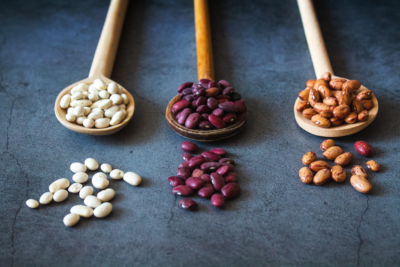Foie gras is one of the most controversial foods in the world, and is considered horrendous even by many people who wouldn’t flinch at the thought of eating any other animal product.
It is not just vegans who consider the production of foie gras barbaric or who become viscerally repulsed at the thought of how it is made.
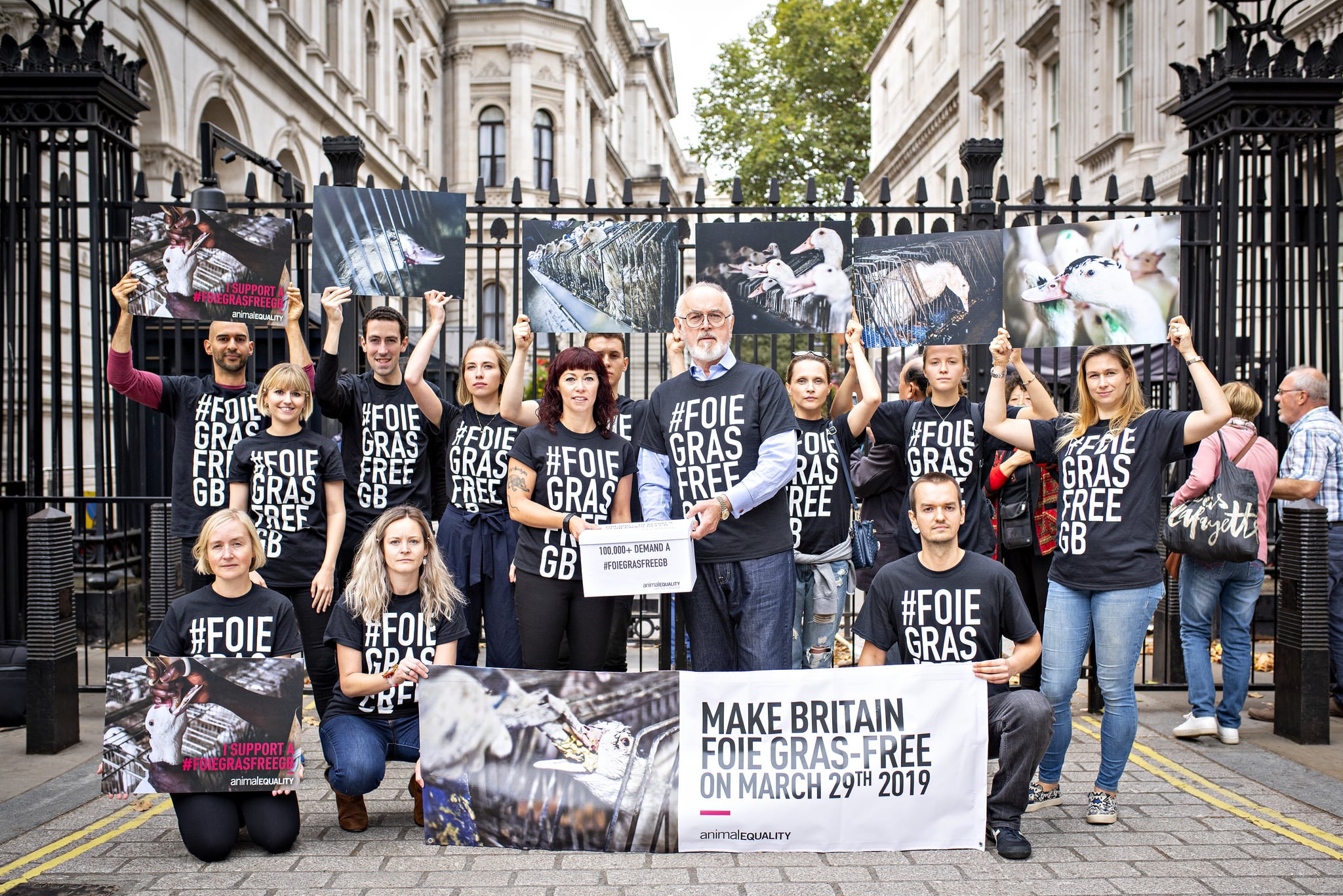
In fact, in 2012 a survey was conducted which suggested 63% of British people would like the sale of the product banned and, in 2018, a number of celebrities handed a petition in to parliament to lobby for a post-Brexit import ban.
Currently, no major supermarket chain in the UK stocks the product. But what is foie gras and why does it upset so many people?
What is Foie Gras?
Yet, in 2019, it was found that one of the leading suppliers of foie gras in Europe used engine oil to grease the pipes it then forced down birds’ throats. Birds were thrown violently back into their cages; injured and dead geese were left rotting in piles together.
Foie gras is the fatty liver of a duck or goose. It is considered a delicacy by some but, to most people, it is something much more horrific.
To produce foie gras, ducks and geese are force-fed grotesque amounts of food up to three times a day through a tube or funnel pushed down their throats (this is known as the “gavage process”).
Food is forced into their stomachs and, as a result, the birds’ livers swell, sometimes increasing to about ten times their natural size. The birds will suffer not just from the engorging process itself but from side effects relating to the sheer quantity of corn they are forced to consume. It is hard to imagine many things more awful happening to a living creature.
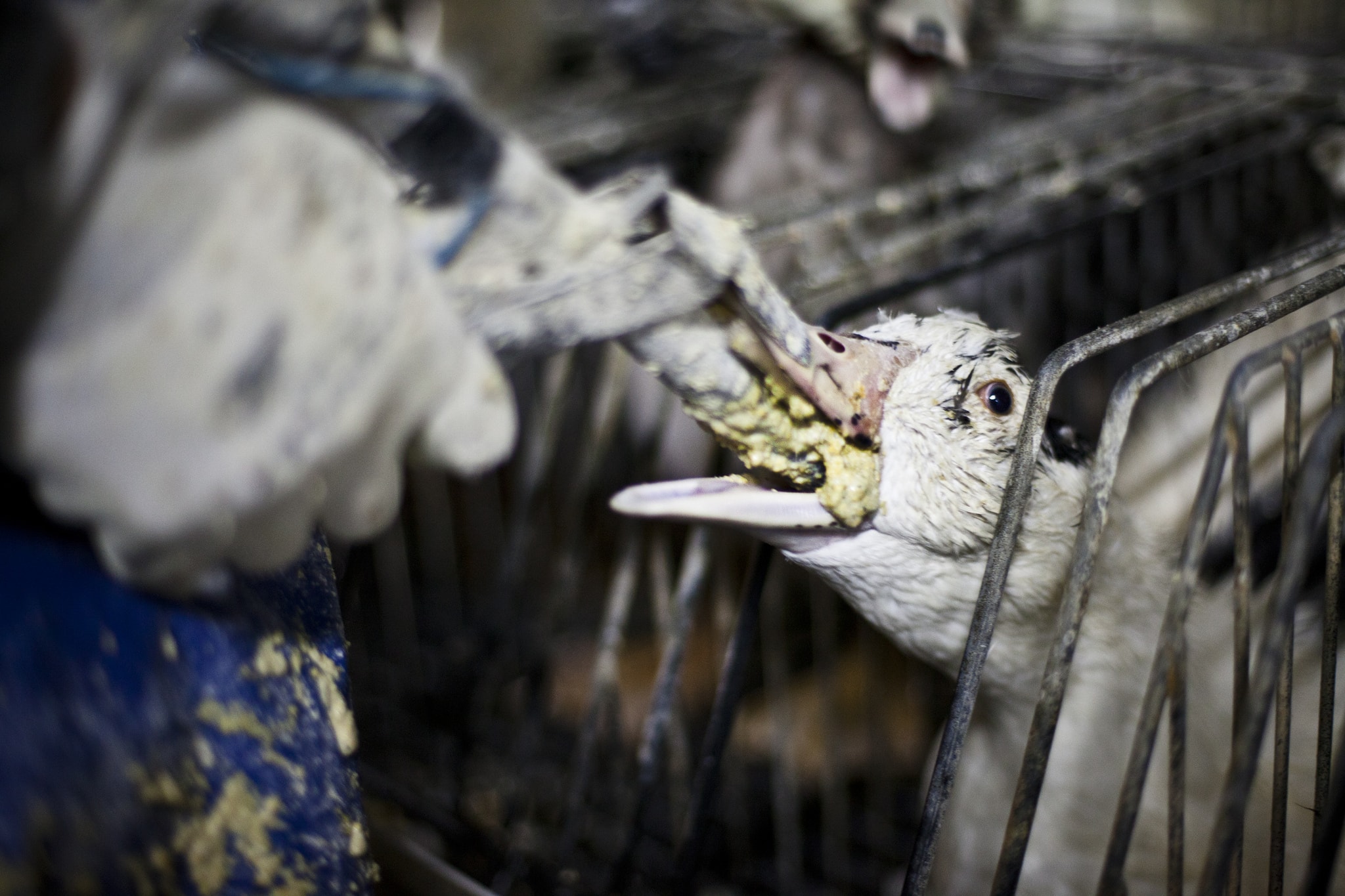
Even at farms where such incredibly harrowing events have not been reported, ducks and geese experience incredible hardships. Not only is the feeding process itself violent and traumatic, often causing internal injury or death, most ducks are kept in cages and some never see water.
The immense stress caused by being away from their natural habitat is startling and side effects include blindness. Even the birds who avoid the worst injuries of the gavage process may find themselves in constant discomfort due to the artificially large size of their livers; some suffer from distended abdomens as a result of their feeding.
Where Is Foie Gras Bought And Sold?
France is by far the largest producer and consumer of foie gras, accounting for up to 79% of the world’s production according to a 2012 report by Animal Equality. Bulgaria and Hungary have historically accounted for producing large quantities of the swollen bird liver while the United States and China are large consumers of the product.
Banning Cruelty
The production of foie gras is so controversial that a number of countries including the UK, Germany, Italy, Argentina, Luxembourg and Turkey have banned it outright.
In the United Kingdom, although it has been illegal to produce foie gras since August 2000, it is not against the law to import the product. This loop-hole has been addressed by a number of celebrities including Thandie Newton, Dev Patel, Joanna Lumley, Ricky Gervais, Bill Oddie and Veganuary ambassadors Chris Packham, Peter Egan, and Evanna Lynch – the group all publicly backed Animal Equality’s campaign to ban the import of foie gras.
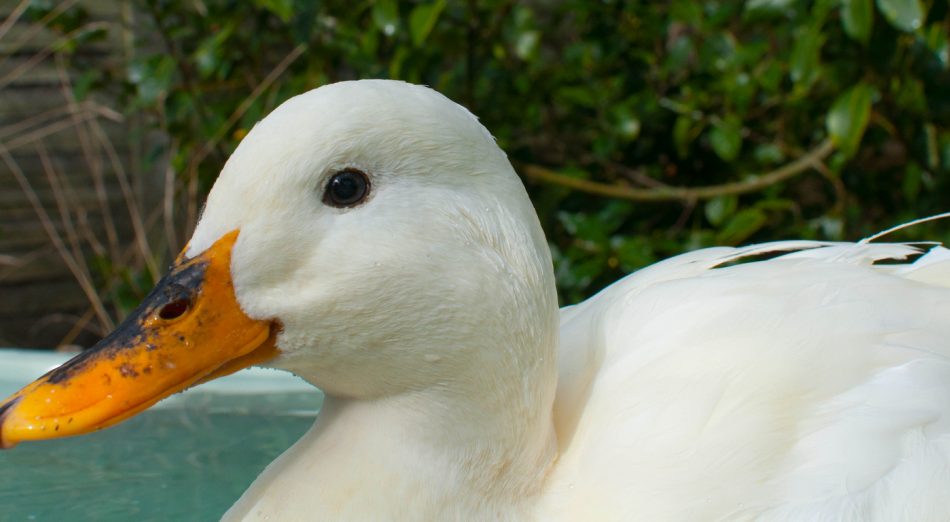
What Should Geese and Ducks’ Lives Be Like?
In their natural habitat, ducks are social animals who live together in large flocks and who migrate in family groups. Like us, they work during the day (searching for food), and sleep at night alongside their families. Also, like us, they apparently have regional accents!
Geese are equally interesting birds who, outside the farming system, live fascinating lives. Most geese are vegetarians, incredibly sociable, and some form flocks of hundreds or even thousands when they migrate in autumn or winter – some geese, though, chose to remain in just once location all year. Geese and ducks share a common desire to live a life free from captivity and suffering.
What Can I Do About Foie Gras?
Aside from sharing this article, to let other people know about the horrors of foie gras and the lives of the birds involved in the industry, we recommend looking out for petitions in your country to put further pressure on banning the practice. You may choose to boycott venues where foie gras features on the menu.
If you have previously eaten foie gras and really enjoy the taste but want to avoid harming duck or geese, we recommend searching the internet for vegan foie gras recipes – oftentimes, the plant-free versions are cleverly renamed as “faux gras”.
If this has got you thinking about animal suffering, we’d love for you to try our 31-day vegan pledge so you can discover for yourself the vast array of incredible recipes and products available. If you sign-up, we’ll send you a free eCookbook, meal plans and a nutrition guide to get you started! We hope you’ll join us!


